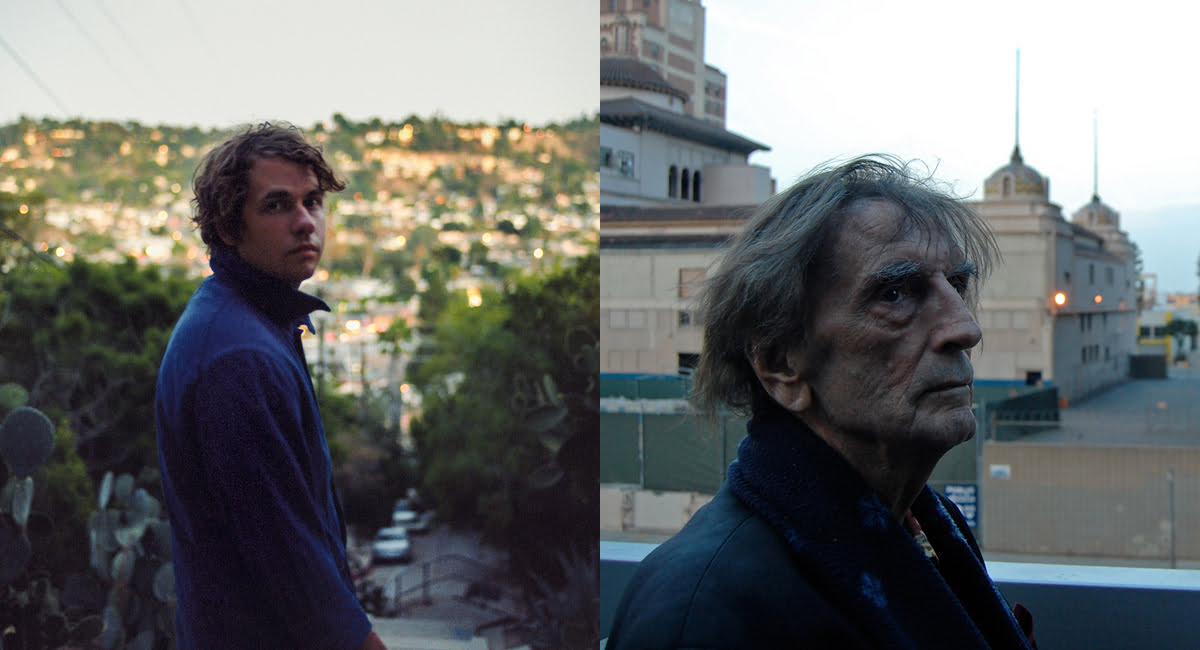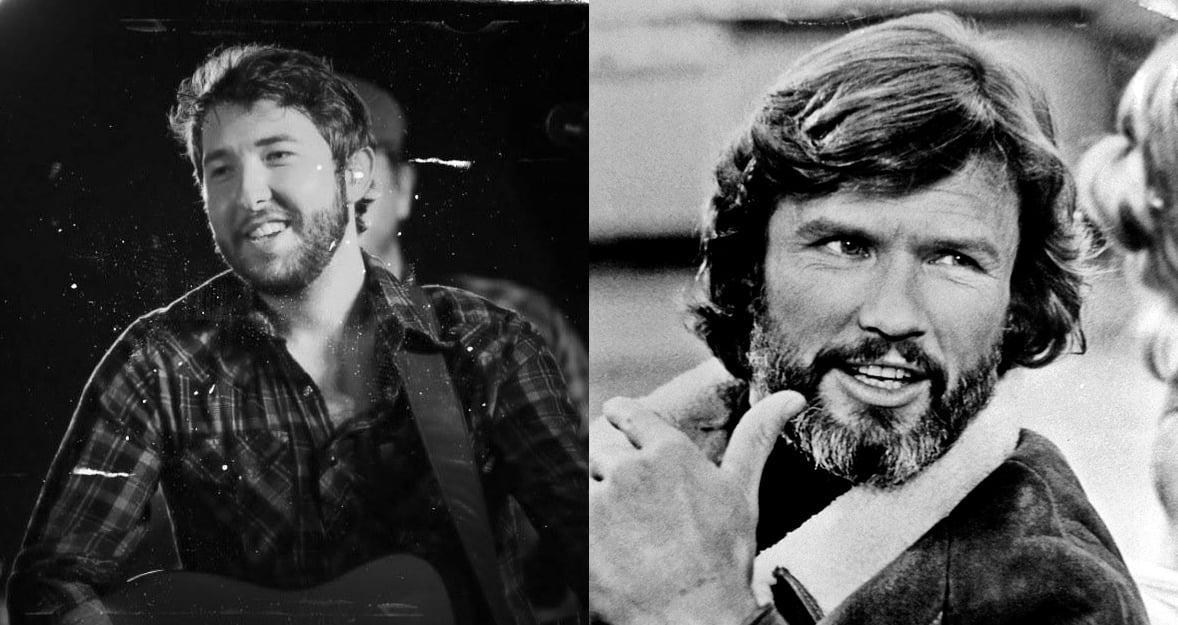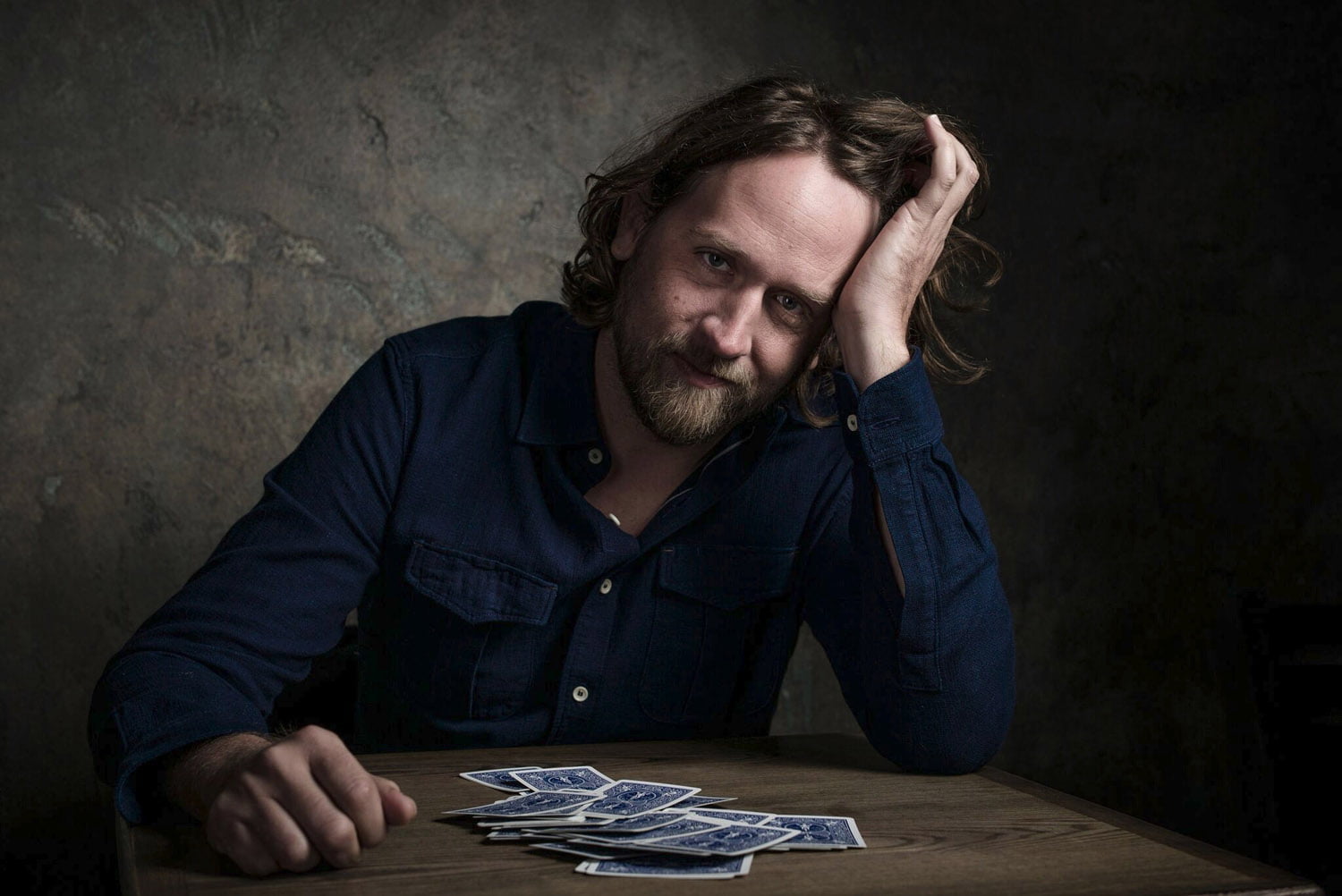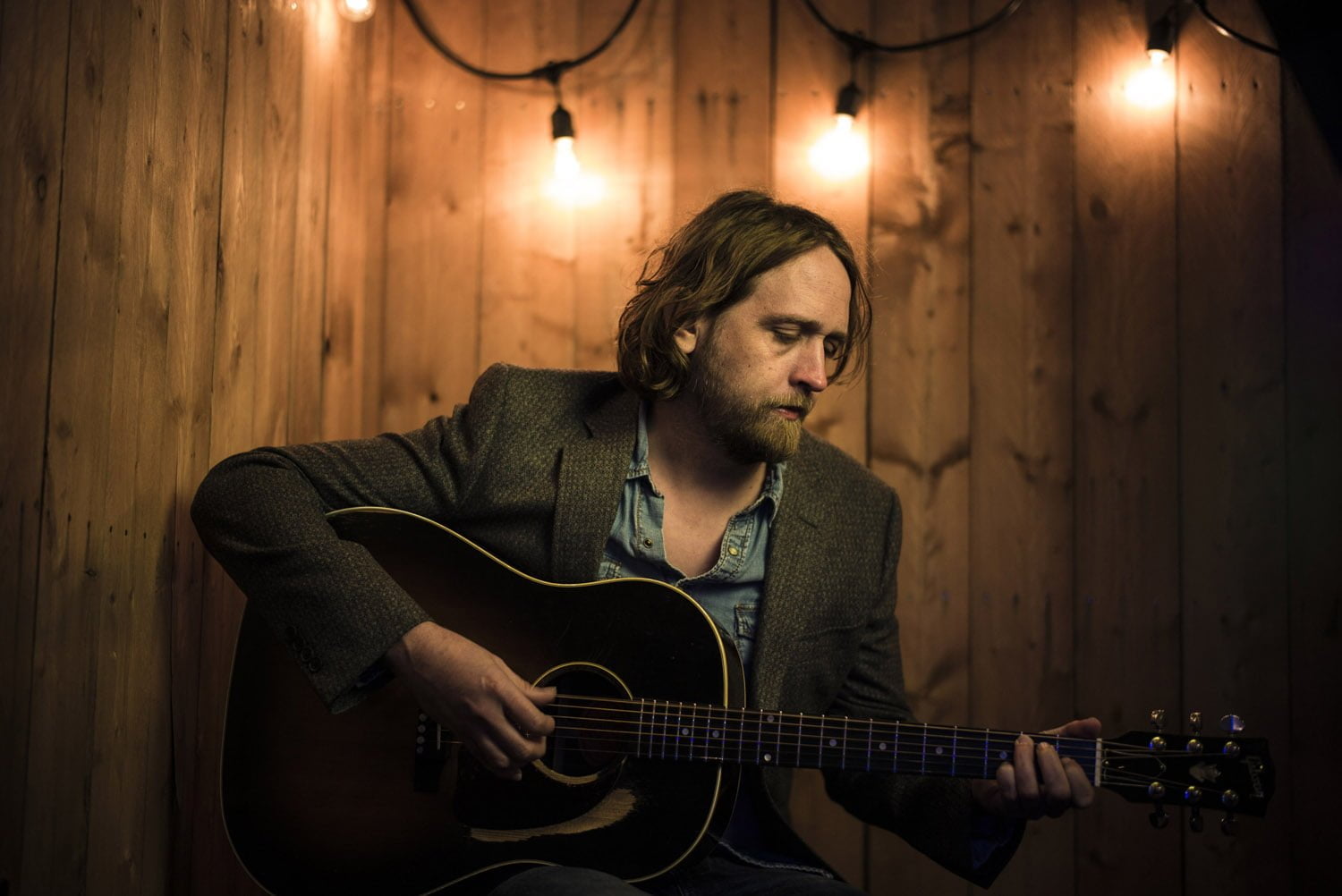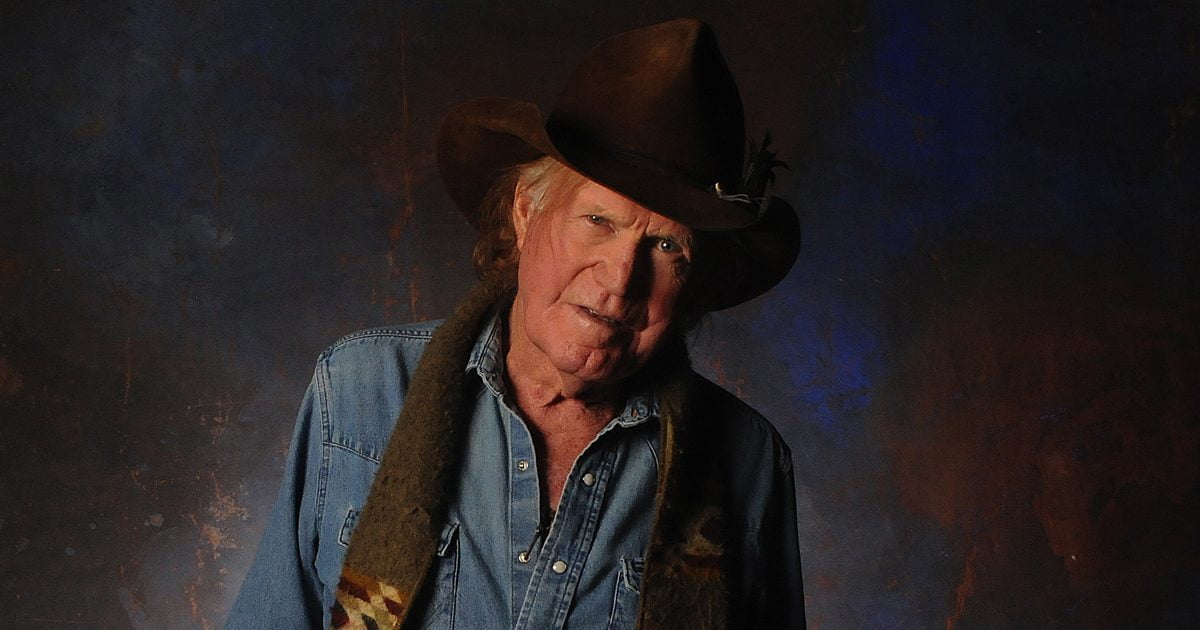Roots culture cuts a wide swath that expands far beyond music, and Kentucky native Harry Dean Stanton is a living testament to that. Any list of roots icons would have to include him, if only for his performances on screens big and small in everything from Cool Hand Luke to Gunsmoke. But what only the die-hards know is that Stanton was a musician first, playing harmonica and guitar, and doing the old-school troubadour circuit back in the day. His musicianship even creeps into his acting work, from time to time, which is exactly what he was hoping for.
Born in Lubbock and raised in Kansas City, Kevin Morby has a good bit of the Heartland in him, as well. As a musician, Morby played a part in both Woods and the Babies before branching out on his on a few years back. He recently issued his third solo set, Singing Saw, which finds him looking to his roots in Bob Dylan and Neil Young even while he stretches his wings to reach new heights.
Bold, unexpected choice you've made here with Harry Dean Stanton. I dig it. Let's hear you defend it, though. What is it about this guy that makes you think “roots music hero”?
[Laughs] To preface it, I just have to say that he's one of those people that, for the longest time, I didn't even know who he was. I'd seen him in a lot of movies, and he kind of became one of those people who you become familiar with the face, but you don't really concern yourself with the name because you feel like you already know them. Then, one day, you finally learn his name and it's, “Oh, that's that guy's name. I had no idea he had a name even.” [Laughs]
[Laughs] He was just this leather saddlebag that was always there.
[Laughs] Yeah, exactly. He's just one of those incredible actors who can pull that off. I think the thing about someone like him is that he is just who he is. He sort of plays himself all the time, which is kind of rare.
Anyway, a long time ago, when I was in a band called the Babies, we played this Western-themed art installation in a clock tower in New York. And they wanted us to pick a movie to be projected behind us while we played, and I picked Paris, Texas, because I had seen it recently and that's maybe the only movie where he's the lead role. I just love that movie. The soundtrack is so great. The cinematography is so incredible. So, we played with the movie projected behind us and all these photos came out of it that were really cool — him walking through the desert behind us.
A couple years later, I played at a venue in Portland and I didn't even realize until we were playing that they had this big mural of him from Paris, Texas behind us. So he's just always there.
He's like your guardian angel or something. You guys have a thing.
Yeah, exactly. Okay, then a couple of years ago in L.A., I went to Cinefamily because Kris Kristofferson was doing a Q&A. They were playing Cisco Pike which he starred in and Harry Dean Stanton is also in. I went because he was doing a Q&A and was going to play a couple songs before the movie. When I got there, I had no clue that he was doing the Q&A with Harry Dean Stanton. It kind of blew my mind. It was one of those things where Kristofferson was as together as he could be, but every question, he kind of gave a standard response … like they would ask, “Kris, what was it like working with that director?” And he would say, “It was a very fun time and we all had a good experience.”
Harry Dean Stanton, who was sitting next to him the whole time, literally never didn't have a cigarette in his mouth and was drinking wine on stage. Every time Kristofferson would give a positive answer like that, Harry Dean Stanton would chime in and say, “Nothing means anything.” [Laughs] He would say these nihilistic things and tell Kris Kristofferson to shut up. Even within the Q&A, he was the way he is in movies — this wingman. It was really incredible to see.
At one point, he told a story about when they were doing Billy the Kid and he and Bob Dylan were jogging and they accidentally jogged through the scene. It was really funny imagery. So, they did the Q&A, then they played three songs … they played two songs, then the second song, which might've been “Me & Bobby McGee,” they ended up playing it twice. Totally didn't realize that they were repeating themselves. [Laughs] It was so amazing. They finished the song and, off the mic — but it's a small enough room to hear — Kristofferson leaned back and was like, “Harry, I think we just sang the same song twice.” It was an incredible moment.
Afterward, I was alone because I went by myself … I was sitting outside at the little party before the movie, sitting there by myself just thinking, “What a cool night.” And Harry Dean Stanton sat down right next to me. It was one of those mind-blowing things. He was smoking and drinking wine, and I asked if I could get a picture with him, so I have this photo of me with him. That's my Harry Dean Stanton story. [Laughs]
[Laughs] That's pretty great. It's interesting that he did the thing with Kristofferson because, listening to his music, he's not that great of a singer.
He's not.
But that's never been a prerequisite for country music … like Kristofferson.
Right. Exactly. I think, with Harry Dean Stanton, if you watch the trailer of his documentary, throughout it, he's singing the Nilsson song, “Everybody's Talkin'.” The dude is almost 90 years old and he's got the total turkey warble to his singing, but it's really beautiful. And when I saw him perform, too. I think he's just one of those cool treasures. When you finally decide to look into him, you realize he's a singer who used to sing every night at the Troubadour. He's just this artist that's all-encompassing. He's invested in the arts and he's more of a musician than an actor, in this weird way. He's kind of more interested in that and just maybe happened to be better at acting. He's just an American treasure. And I love people like that.
I think that's a great way to describe him because he did — he made the choice early on to pursue acting because he thought he'd be able to do music as a part of that. And he was right. I'll tell you, it's kind of fun to listen to his take on “Tennessee Whiskey” next to Chris Stapleton's. If you haven't done an A/B on that …
[Laughs] Oh, man. I'd love to hear that. I just watched this video of him and Art Garfunkel singing at some celebration for Jack Nicholson, and they sing “All I Have to Do Is Dream” by the Everly Brothers. It's so good. He's just one of those charismatic people, this weird all-star.
You're right. And, if you do step outside of music and just consider his roles in Cool Hand Luke, Gunsmoke, How the West Was Won, Dillinger … he's got some dirt road cred. In terms of roots, he was even born in Kentucky.
Right. For sure.
I get it. I dig this choice. We can work with it.
It's funny. That's cool. I remember, in Cool Hand Luke, the first time I saw that was maybe 10 years ago, there's a scene where he's playing banjo and singing, “If you're going to Houston, then you better watch out.” I've never heard that song outside of that movie, but it gets stuck in my head all the time. He's just always there and he plants little seeds in your mind. You look behind you and it's like, “Oh, there's that guy.” [Laughs]
[Laughs] And, like you said, he was jogging with Dylan and he's been in videos by Dylan, Ry Cooder, and Dwight Yoakam. So, he is. He is always there.
Have you seen The Straight Story, the David Lynch movie?
No. But it's on my list.
It's a really incredible movie, a Lynch movie that views nothing like a typical David Lynch movie. It's so good. The whole thing is that this guy goes to see his brother because his brother's about to die, but the guy can't drive anymore, so he drives a tractor. The brother is played by Harry Dean Stanton. It's a very small role that comes at the end, but it's kind of the most perfect Harry Dean Stanton role, in a way. I won't give anything away. Go watch it for yourself and you'll see what I mean.
Kevin Morby photo by Dusdin Condren. Harry Dean Stanton photo by hermitosis via Source / CC BY-ND.
